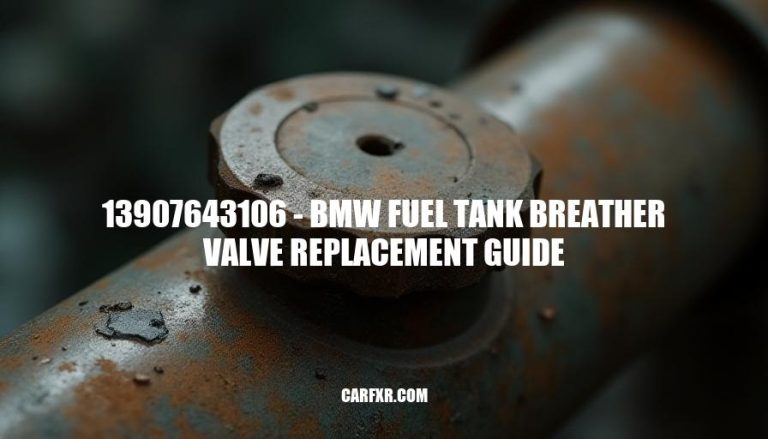
The BMW Part fuel tank breather valve 13907643106 helps keep the fuel tank at the right pressure. It lets air out and stops a vacuum from forming, which can cause problems like hard starting or poor gas mileage. If it’s not working properly, you might end up with engine issues or even damage to your fuel system.
Knowing how this part works is key to keeping your BMW running well.
The BMW Part fuel tank breather valve 13907643106 is a crucial component in the vehicle’s evaporative emissions system. It functions by allowing the release of excess pressure and vapors from the fuel tank to prevent over-pressurization and potential fuel system damage. The valve ensures that these vapors are safely vented to the atmosphere or recirculated into the engine for combustion, thereby reducing harmful emissions.
Key features and specifications of the BMW Part fuel tank breather valve 13907643106 include:
Manufacturer: BMW
Part Number: 13907643106
Fitment: Compatible with various BMW models from 2016 to 2024, including 2 Series, 3 Series, 4 Series, 5 Series, X Series, and Z Series.
Weight: Approximately 0.70 pounds (0.32 kg)
Material: High-quality materials ensuring durability and reliability
Warranty: Comes with BMW’s factory warranty
Unique characteristics that differentiate this component from others include:
OEM Quality: Being an original equipment manufacturer (OEM) part, it meets BMW’s stringent design, fitment, and performance standards.
Bosch Manufacture: The valve is manufactured by Bosch, a reputable supplier known for producing high-quality automotive components.
Environmental Compliance: Designed to comply with environmental regulations, ensuring minimal emissions.
Ease of Installation: Features plastic connectors that simplify installation and replacement.
This detailed description should provide a comprehensive understanding of the BMW Part fuel tank breather valve 13907643106 and its role within the fuel system.
The BMW Part fuel tank breacher valve 13907643106 plays a crucial role in maintaining the vehicle’s performance and efficiency by regulating pressure within the fuel tank, preventing over-pressurization and potential damage to the fuel system.


